
Litigation, Integrity, and the Future of Law: In conversation with Senior Advocate Malvika Trivedi
Interviewed by Shaleen Bareja

Interviewed by Shaleen Bareja

“Pleadings by themselves do not meet the requirements under Section 17 or Section 18 of the Registration Act, 1908 for registration, nor do they satisfy the definition of an “instrument” under Section 2(14) of the Stamp Act, 1899.”
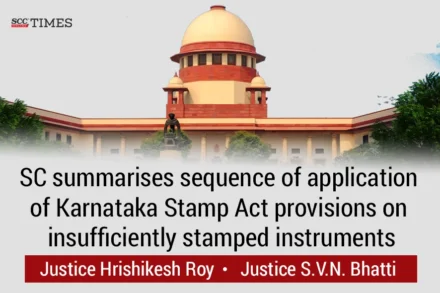
The Court pointed out that the object of the Karnataka Stamp Act, 1957 is not to exclude evidence or to enable parties to avoid obligations on technical grounds. Rather, the object is to obtain revenue even from such instruments which are at the first instance unstamped or insufficiently stamped.
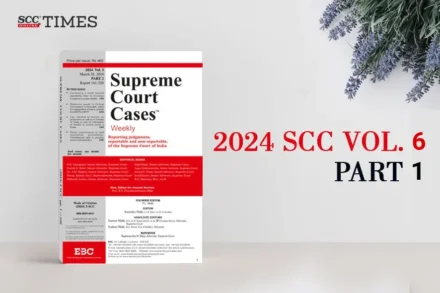
Arbitration and Conciliation Act, 1996 — Ss. 11 & 8 and 16 r/w S. 7: Law clarified on harmonious construction of Arbitration

There is a clear distinction between the invalidity and inadmissibility of the document. The document is rendered invalid if the document is not sufficiently stamped and would not be admissible in evidence unless such instrument is duly stamped as provided under Section 35 of the Indian Stamp Act.
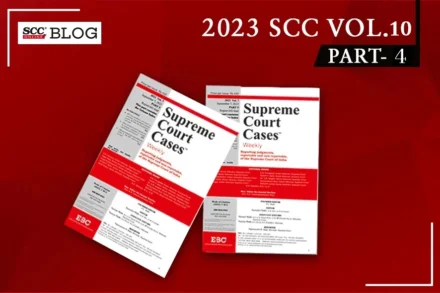
Central Vigilance Commission Act, 2003 — S. 25 r/w FR 56 — Tenure of Director of Enforcement: Permissibility of continuation of tenure
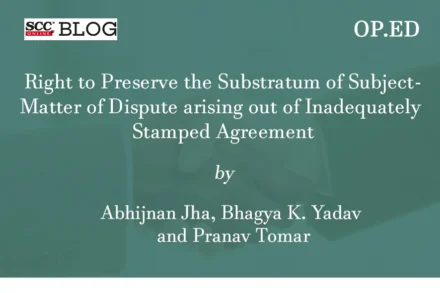
by Abhijnan Jha†, Bhagya K. Yadav†† and Pranav Tomar†††
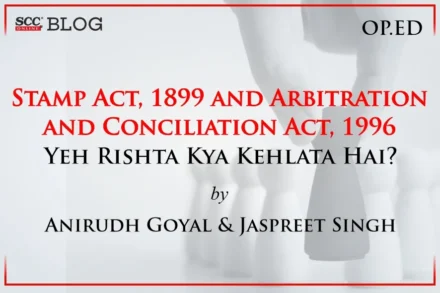
by Anirudh Goyal† and Jaspreet Singh††
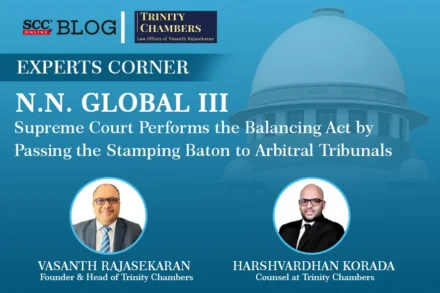
by Vasanth Rajasekaran† and Harshvardhan Korada††
Cite as: 2023 SCC OnLine Blog Exp 88
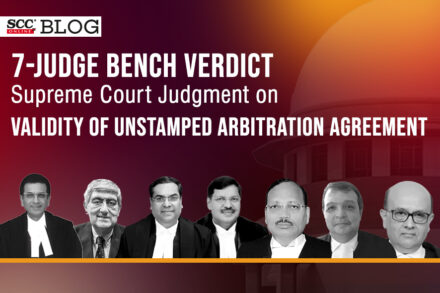
“The concept of separability or severability of an arbitration agreement from the underlying contract is a legal fiction which acknowledges the separate nature of an arbitration agreement. The separate nature of the arbitration agreement from the underlying contract is one of the cornerstones of arbitration law”

The case relates as to how the statutory mandate under Section 11(13) of Arbitration and Conciliation Act, 1996 which aims at expeditious disposal of petitions under Section 11 of the Act, is harmonized with the obligation imposed vide the judgment N.N. Global Mercantile (P) Ltd. v. Indo Unique Flame Ltd, (2023) 7 SCC 1, to act in tune with the statutory dictate of the Indian Stamp Act, 1899.

“In certain situations, it may be expedient to leave it to the arbitrator to determine the issue as to whether stamping is insufficient, and if so, the arbitrator will take recourse to Section 33 of the Stamp Act, 1889.”
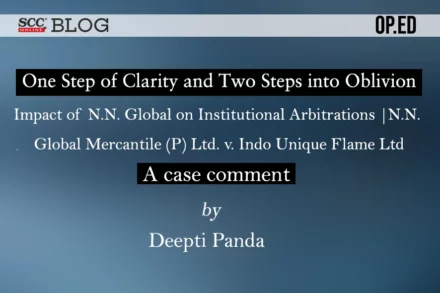

If adjudication of any stamp duty payable involves any complexity/ extraordinary circumstances, the adjudication of stamp duty can be extended for a maximum period of three months from the date of application.

by Vasanth Rajasekaran †
Cite as: 2023 SCC OnLine Blog Exp 38
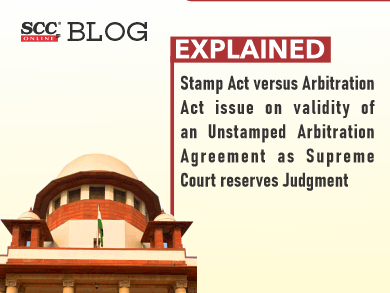
The Constitution bench considered a question of law : whether the instrument was duly stamped or not, was not only contrary to the plain language of Section 11(6A) of the Arbitration Act, but also wholly defeated the legislative intention of the Arbitration and Conciliation (Amendment) Act, 2015, and puts a spoke in the wheel of conduct of the arbitration process at its very inception.
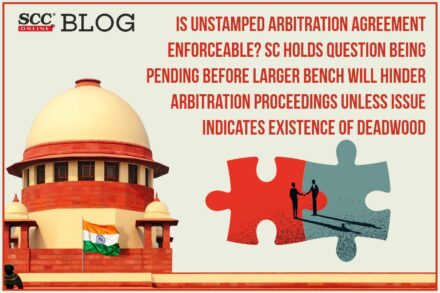
Supreme Court: While addressing the issue related to jurisdiction of Court under Section 11(6) of the A&C Act, the 3-judge Bench comprising

National Company Law Tribunal, Mumbai: The Coram of H.V. Subba Rao, Judicial Member addressed the relevancy of insufficiency of stamp duty under

Andhra Pradesh High Court: M. Satyanarayana Murthy, J., expressed that, “If a party to the document wants to annul the document, he
